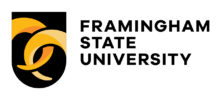I. Philosophy
Framingham State University views student health and safety as matters of paramount importance. The University Alcohol and Drug Policies reflect this priority by prohibiting the use of substances in a manner which is dangerous and/or unlawful.
Students are encouraged to call 508.626.4911 to request medical assistance when they or others may be dangerously intoxicated/under the influence of alcohol or drugs; or experiencing any medical emergency. The Medical Amnesty Policy serves as a supplement to the University’s Alcohol and Drug Policies and is designed to encourage help seeking behavior for individuals requiring medical assistance. This policy provides amnesty from consequences described in the Student Code of Conduct and does not preclude hospitalization, protective custody, interim separation, or other actions deemed relevant for student safety.
II. Policy
This policy applies to students seeking medical assistance for themselves or for another person, and who act in accordance with the expectations set forth in this policy. It also applies to any student for whom medical assistance was sought. Under this policy:
a. When students contact University Police or another appropriate University staff member (e.g. Student Desk Attendant (SDA), Resident Assistant (RA), etc.) seeking medical attention neither the reporting student nor the student for whom medical assistance was sought will be subject to a Student Conduct complaint for possession, consumption or intoxication under the University’s alcohol or drug policies.
b. In order to qualify for medical amnesty under this policy students who seek assistance for anther person must remain with that individual (assuming the student is present at the scene) until University Police or other designated first responder (e.g. ambulance, Fire Department) arrives on scene. It is expected that individuals involved in this process cooperate fully with the first responders.
c. This policy does not apply to individuals requiring medical assistance for alcohol- or drug-related issues who do not seek assistance, for whom no assistance was sought, or who have already been brought to the attention of University staff or emergency responders. For example, this policy would not apply to an intoxicated individual whom the police discover creating a disturbance on campus.
d. When it is the opinion of the Dean of Students or designee that the continued presence of a student constitutes a danger to the student, or to others, the imposition of interim separation or other temporary restrictions deemed necessary shall not be precluded under this policy.
e. In order to qualify for medical amnesty under this policy the students(s) will be required to; (i) attend a meeting with the Associate Dean of Students or designee; (ii) attend a meeting with a counselor at the University Counseling Center and/or a staff member at Wellness Education if required by the Associate Dean of Students or designee; and, (iii) act in accordance with all student expectations outlined in this policy.
f. This policy applies to University alcohol and drug policy violations related to possession, consumption, and intoxication. It does not prevent a complaint being filed against a student for other violations of the Student Code of Conduct (e.g. assault, distribution of illegal substances, etc.), nor does it prevent police/criminal action.
g. Repeated incidents resulting in the application of this policy would be of great concern to the University. In such cases, the University reserves the right to take disciplinary action on a case-by-case basis.
